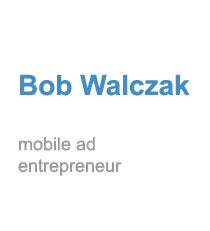 On Friday, ClickZ’s Jack Marshall noted that Ringleader Digital, a mobile technology and ad network, may have “vanished” – in other words, ceased operations. Read more.
On Friday, ClickZ’s Jack Marshall noted that Ringleader Digital, a mobile technology and ad network, may have “vanished” – in other words, ceased operations. Read more.
Today, Bob Walczak, Ringleader Digital’s former CEO discussed his former company and his own plans in an interview with AdExchanger.com.
Disclaimer From Mr. Walczak: “The below comments are not an approved statement from Ringleader Digital, it’s Board or creditors. I am speaking solely on my own behalf as an individual no longer affiliated with Ringleader Digital in any way.”
AdExchanger.com: What is the current status of Ringleader Digital and your involvement with the company?
BW: Business operations have been suspended, the team was terminated including me, as of June 30 and the assets turned over to creditors.
What will happen to the company’s IP? What do you see as core technology that would be valuable to a potential buyer?
- The IP has been turned over to the creditors.
- The most valuable component is the Media Stamp technology, a mobile 3rd party cookie equivalent. This technology is significant for mobile advertising for many reasons. Basically every online ad model relies on cookies and Media Stamp was the only technology of it’s kind in mobile to provide that functionality. 3rd party cookies on mobile work less then 60% of the time and in my view the next evolution of display advertising in mobile is Audience Targeting; which requires 3rd party cookies.
Were the concerns around privacy that triggered a lawsuit detrimental to the company’s growth? What brought the end, if you will?
The lawsuit was baseless, however, while Ringleader didn’t lose clients based on the lawsuit, it did stunt our growth, forced us to miss projections and take financing terms that made the company ultimately non-financeable and unable to grow forward.
Is/was Ringleader Digital ahead of its time?
I would definitely say that Ringleader had a timing issue – I mean we launched Media Stamp at the end of 2008 when mobile was more about acquiring reach, not narrowing your reach with targeting. Unfortunately I believe we were finally on the cusp of being in the right place with the right technology at the right time when the business was forced to shut down. My view is that Ringleader was becoming more and more relevant every day with the growth, attention and direction mobile advertising is heading today.
What were a couple of key learnings you had as a mobile ad pioneer with MoPhap and Ringleader Digital?
Where to start??? Mobile is a key component of the digital market, it is still in its infancy but if you want to know where it’s going, track online. The gap between online and mobile when I started the company in 2005 was years apart, now the gap has narrowed to be 12-18 months apart. My view is that ultimately it will be thought of as digital…not online, mobile or new media. This means that there are a ton of pitfalls that mobile will run into that are identical to what online has gone through, to name one, privacy seems to have re-spawned as an area of attention again.
In general, is mobile finally here as an advertising medium – particularly using the ad network model?
Mobile I believe arrived in 2010 out of the rubble of the 2nd great depression. As advertisers pulled a lot of money off the table during this time period, when it came back to the table it was reallocated digitally and inclusive of mobile. Every company that I speak to now is talking about mobile, how to evolve their business model to include it, and what should be the strategy to deploy it. My view is that if my above assessment is correct, (that it’s all eventually going to be called digital), then don’t change what’s working with your online model. The thought is enable the model that is working online in mobile, by accounting for the two main items that separate the mediums… cookies and device detection.
What’s next for you?
No clue frankly, I’m sure I’ll be a CEO again soon, but probably not as the next step. I need a little time off from managing investors, a board and a company. Something I’m very passionate about is giving back to the entrepreneur community by working with companies and entrepreneurs helping them to build their businesses, fund them and provide guidance in mobile, digital and privacy as it relates to advertising. I’d imagine there are a lot of companies that I can help with mobile strategy. I learned a tremendous amount over the last 6.5 years building Ringleader, and built a very strong network in the digital community…I’m very excited to enter the next phase of my career!!!
By John Ebbert











